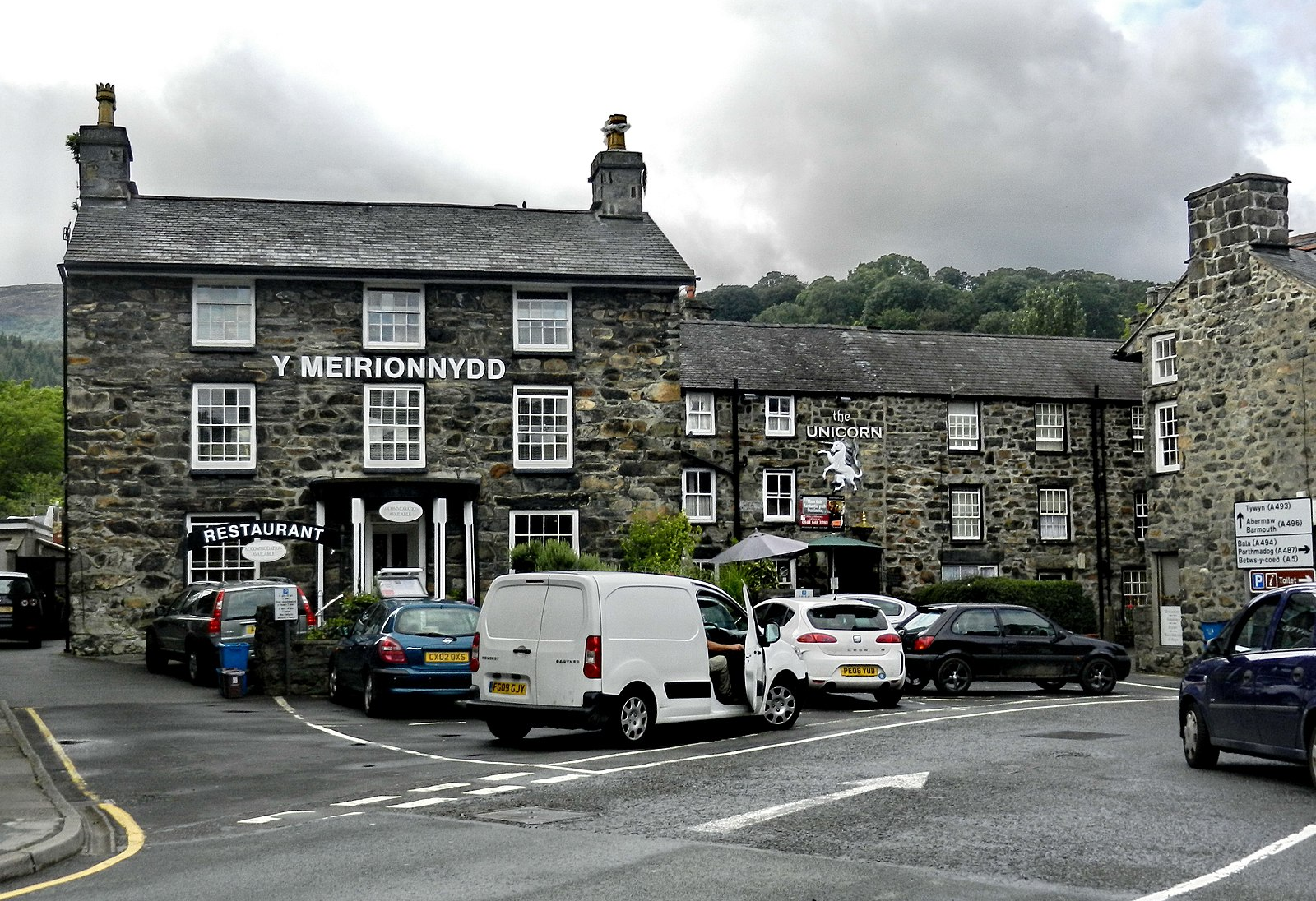William Jones of Byrntirion, 1808
Welsh nonconformity was overwhelmingly Calvinist in the eighteenth century but it was not immune to the winds of change. In the second half of the century Methodism was growing rapidly in England. In 1750 and 1751 when on the way to Ireland and back, Charles Wesley preached in Bala and Dolgellau - then usually spelled Dolgelly - but he did not did not give the principality his full attention.
Nonetheless some heard him and a Mr Foulkes of Bala published the Rules of the Methodist Societies in Bala in 1761.
One William Jones of Byrntirion (a large house and estate some five miles to the north of Dolgellau) was a devout man who
“… was a good linguist, had mastered Greek, Latin and Hebrew, but declined to go on to the University, because, as he said, he did not feel called to preach the gospel, and with that conviction could not tell a lie and take Holy Orders. So instead he became a joiner."
(The Origin and History of Methodism in Wales, p.590, here, my sole source for this account.)
 |
| Dolgellau centre, August 2011, Wiki |
By 1804 Jones had been a member of the Calvinst Methodist Society for 26 years, and a minister for 22 years, but his theology had begun to drift and other members were increasingly dissatisfied with his preaching. Matters came to a head when it became known that Jones had gone to listen to hear a Wesleyan preacher and, afterwards, had invited the preacher to his home: church members “were terribly annoyed.”
The assembly of the Calvinist Methodist Society (wiki) met in Dolgellau in November 1808 and heard the case against William Jones. (The account does not say whether Jones was present or not but implies that he was.) There was a strong feeling in favour of expelling him but an elderly minister argued “that Mr Jones should be allowed to remain on the deck as the only hope of his salvation, at the same time trusting that he would see the error of his way.”
Not everyone was inclined to tolerance, however, and the following day, a Sunday, “Mr. B. Griffith … preached on Isaiah 2:22 Cease ye from man, whose breath is in his nostrils; for wherein is he to be accounted of?" This was not a subtle attack on William Jones “who left the deck and joined another crew on board another ship."
Jones subsequently associated himself with the Wesleyan Methodists and built “a neat circular chapel, on a level spot, half way up a tall mountain … for his family and neighbors (sic) to worship God on his estate …” (L. E. Jones, Family sketch, here).
Comments
Post a Comment
Comments and corrections are welcome. But please note that the focus is on the historical examination of heresy cases, not the rights and wrongs of the theology..